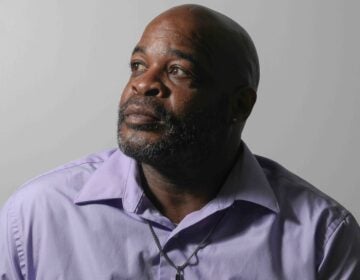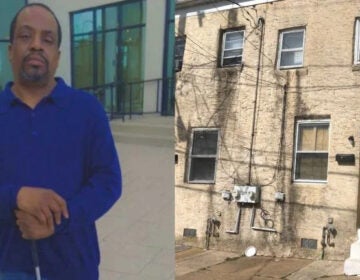Delaware legislators aim to overturn court, reinstate death penalty
Three years after Delaware’s Supreme Court ruled capital punishment unconstitutional, lawmakers want to reinstate it. Several police associations support the measure.

Three years after Delaware’s Supreme Court ruled capital punishment unconstitutional, lawmakers want to reinstate it. Several police associations support the measure. (Ted S. Warren/AP Photo)
Three years after Delaware’s Supreme Court ruled capital punishment unconstitutional, state lawmakers say they can reinstate the death penalty while abiding with the constitution.
A 2016 measure to abolish capital punishment gained support in the Senate but failed to pass in the House. Delaware’s Supreme Court ruled the death penalty unconstitutional just a few months later because it left the final decision of sentencing to the judge and removed it from the jury’s hands.
Delaware’s House of Representatives voted to reinstate the death penalty the following year. But a Senate committee never released it to the floor for a vote.
Now two Republican and two Democratic lawmakers are trying again.
They argue it’s constitutional because it would require a jury’s unanimous decision that the defendant is guilty beyond a reasonable doubt and that the offense is eligible for the death penalty under the statute. The judge must also agree with the jury and make the final ruling.
Those deemed guilty but mentally ill would be exempt.
“You must be 100% sure — not 99 — but 100% sure the crime was committed by that individual or individuals,” said state Rep. William Carson, D-Smyrna, one of the bill’s sponsors.
State Rep. Sean Lynn, D-Dover, who sponsored the 2016 measure to abolish the death penalty, said those safeguards in the bill will not change disparities within the criminal justice system.
“While I have not seen the bill yet, I also have never seen a bill reinstating the death penalty that addresses the inherent bias and racial disparities that exist in implementing such a policy,” said Lynn, who also chairs the House Judiciary Committee, which is likely to debate the legislation before a vote on the floor.
“The facts are that no matter what protections proponents put in place, the death penalty is not administered equally to all defendants without bias. I remain morally opposed to the death penalty,” Lynn said. “I simply do not believe that the state should be in the business of killing its citizens.”
The NAACP’s Legal Defense and Education Fund said 42% of death row inmates are African American. In Delaware, African American defendants who have allegedly killed white victims are six times more likely to be sentenced to death than African Americans accused of killing African Americans.
However, supporters including state Rep. Steve Smyk, R-Milton, who was the prime sponsor of 2017’s measure to reinstate the death penalty, believe
capital punishment can deter crime.
“There are two types of criminals. Those who act on impulse regardless of what ramifications there could be for their actions. Then there’s another sliver of society that calculates the consequences of their actions,” he said.
Line-of-duty killing of a police officer, corrections employee, firefighter, or paramedic is among the list of aggravated circumstances outlined in the proposed statute. Efforts to reinstate the death penalty follow 2017 killings of Delaware State Police Corp. Stephen Ballard and correctional officer Lt. Steven Floyd who were on duty when they were slain.
Several police and correctional officer associations support the measure.
However, Democratic lawmakers already have voiced their concerns about the effort.
A spokesman for state Attorney General Kathy Jennings, a Democrat, said the death penalty does not deter crime and has been disproportionately used against low-income defendants and people of color.
Chief Public Defender Brendan O’Neill echoed those thoughts.
“Reviving the death penalty is a wrong-headed and misguided pursuit. The death penalty is a costly and ineffective deterrent to crime that is prone to irreparable mistakes,” he said. “This would be a step backwards for Delaware.”
WHYY is your source for fact-based, in-depth journalism and information. As a nonprofit organization, we rely on financial support from readers like you. Please give today.





